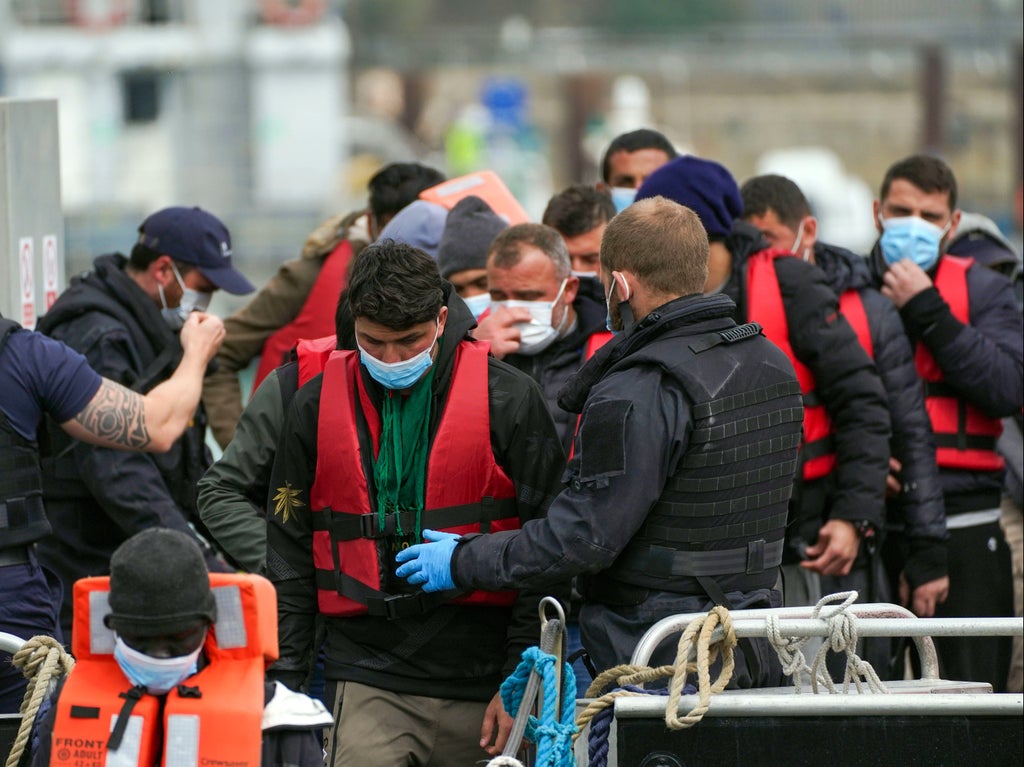
More than 1,000 migrants have arrived in the UK on small boats since Priti Patel announced plans to send asylum seekers to Rwanda to be processed.
The home secretary said last week the vast majority of those who arrive in the UK through “illegal” means, including by crossing the English Channel on small boats, will be considered for relocation to the African country 6,000 miles away while their claims are assessed.
The government has said it believes the plans will tackle people smugglers and act as a deterrent for those considering making the dangerous journey.
But it did little to immediately stop hundreds of people taking advantage of calm weather to attempt the journey over the Easter weekend.
A total of 562 people arrived on 14 boats on Thursday - the same day the Rwanda deal was announced - bringing the total for the year to about 6,000 at that point.
The Ministry of Defence (MoD) confirmed 181 migrants crossed to the UK on six boats on Friday, followed by a further 252 people on seven boats on Saturday.
The MoD said 76 migrants on two boats were brought ashore in Dover, Kent, on Easter Sunday, followed by a further 88 on two packed boats on Monday.
On Wednesday, the same day news emerged of the Rwanda plan, 651 migrants on 18 boats were rescued or intercepted in a record high for 2022.

The asylum plan has been widely condemned by human rights groups, as well as the UN’s refugee agency and the Archbishop of Canterbury. Senior Tories have also predicted the policy will fail.
A government minister on Monday still insisted the plan would act as a “significant deterrent” to people deemed to be entering the UK illegally, and echoed the home secretary’s challenge for critics to come up with a better idea to tackle small boat crossings.
Greg Hands, the energy minister, also denied the UK was outsourcing its responsibilities by sending migrants to Rwanda, after religious leaders criticised the move.
Asked when he expects to see the results of the policy, amid suggestions even within the Home Office that it will not work, he told Times Radio: “We think that it will work and we are confident that it will work.
“We need to be sending that message now – that crossing the Channel illegally isn’t necessarily going to lead to the person being located in the UK.
“So the relocation to Rwanda is there – it will act as a significant deterrent, we think, to people making that journey. And (it) will ultimately be at the cost of the people smugglers who... we want to put out of business.”







